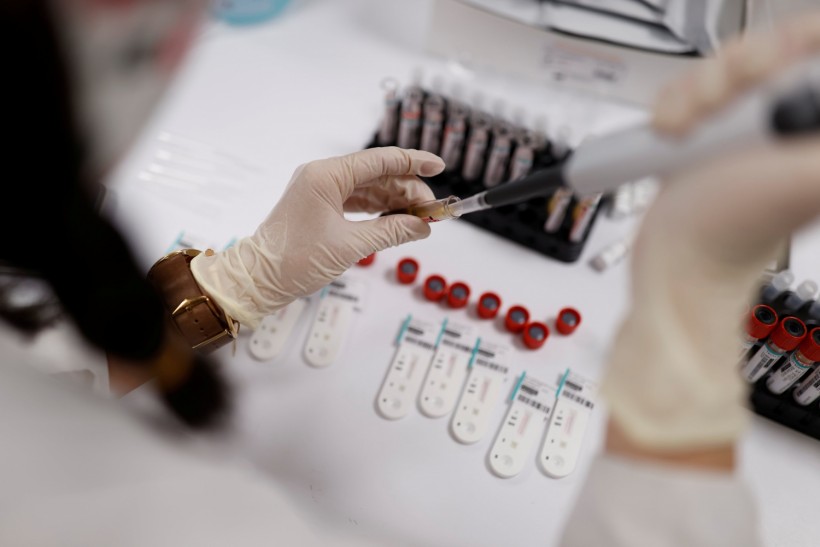A senior FBI cybersecurity official says foreign-state hackers have broken into institutions conducting studies into treatments for COVID-19.

Laboratory staff work on blood samples collected from residents and employees of retirement homes (EHPAD) at the Barrand medical laboratory in Colmar, as the spread of the coronavirus disease (COVID-19) continues in France, April 16, 2020.
Deputy Assistant Director Tonya Ugoretz told Aspen Institute's online panel discussion in Washington that the FBI saw these hackers poking around the United States healthcare region.
"We certainly have seen reconnaissance activity, and some intrusions, into some of those institutions, especially those that have publicly identified themselves as working on COVID-related research," she said.
ALSO READ: Putin's FSB Hacked Once Again: Russia's New Cyber Weapon Aimed To Spy on Every Device Exposed!
Would hack amid the current crisis makes sense?
According to Reuters, Ugoretz said the situation made sense for scientists operating on promising treatments or a possible vaccine to tout their paintings publicly.
The sad flip side, Ugoretz said, leaves the researchers a mark for other nation-states that are interested in gleaning details about what exactly they're doing. She added hackers could even stealing proprietary information that those institutions have.
Fox News said Ugoretz did not specify which country states are probably in the back of the assaults or what they have been able to glean if anything.
Several U.S. Drug manufacturers have started efforts to develop treatments or vaccines for the COVID-19 illness, including Gilead Sciences Inc. And Johnson & Johnson, MarketWatch reported. The National Institute of Allergy and Infectious Diseases, a branch of the National Institutes of Health, and the Biomedical Advanced Research and Development Authority, a division of the Department of Health and Human Services (HHS), have been supporting COVID-19 vaccine research as well.
Even the HHS itself has seen an increase in network scanning because it has been operating to control the pandemic in the country. However, the origins of this target remain unclear.
Not new for the medical sector
Biomedical and health-care-related research has long been a target of nationwide espionage efforts. According to the cybersecurity group FireEye, Chinese hackers have been trying cyber-espionage campaigns against cancer-related research entities, agencies with medical intellectual property, and medical device manufacturers. Suspected Chinese hackers are also believed to have targeted the German drug agency, Bayer, in 2018 with Winnti malware. A Chinese hacker was also indicted for hacking health insurer Anthem in 2015.
Ugoretz said that state-subsidized hackers had regularly targeted the biopharmaceutical industry but stated the activity is really heightened at some point in this crisis.
The ability for hackers to target studies and healthcare establishments associated with coronavirus remedies and vaccines has been on U.S. cyber protection officials' radar since the start of the outbreak.
Last month, two attempts were made by state-backed hacking institutions to penetrate the World Health Organisation, which is supporting to organize the worldwide reaction to the epidemic.
The Department of Justice has made it a priority in the last few months to track down scammers who are taking advantage of the pandemic. A flurry of records protection experts banded together to help the health care sector better shield against cybercriminals alike throughout the worldwide health crisis.
Overall, the number of internet crimes being mentioned to the FBI is currently skyrocketing, Ugoretz said. Typically, the IC3 receives 1,000 complaints a day submitted by its online portal, some that have jumped to 3,000 to 4,000 mentioned online crimes per day, Ugoretz said.
"For hackers, there was this brief shining moment when we hoped that gosh cybercriminals are people too," Ugoretz said. She added maybe cybercriminals would think that targeting or taking advantage of this pandemic for personal profit, that might be beyond the pale. However, Ugoretz said that had not been the case.
ALSO READ: Coronavirus Has THREE Distinct Strains, According to Study; U.S. Suffering From Original Variation








